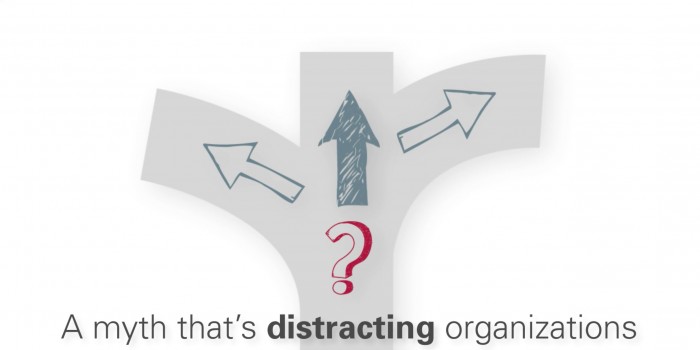Learning from Bus Buddhists
In psychological terms, context is almost everything. Much as we like to think that we know how we will act and react in a given situation, without the richness of...
The Customer Loyalty Myth

The suggestion that customers can be loyal is odd.
Think about it for a moment; who are you really loyal towards? Your family, your friends, your colleagues? Loyalty exists for a reason; it is the glue that makes us do the right thing so that we can have the benefit of being part of a group. The reason that we have the capacity to be loyal is because evolution has determined our chances of survival are better if we team up with other people.
There is no loyalty towards brands. As consumers we know that our money gives us the power to choose. If we switch brands we don’t feel the psychological counterbalance of shame and guilt about the company we’re leaving behind. In fact, we feel precisely nothing about our ‘ex’ brand.
Describing someone’s repeated use of a brand as ‘loyal’ is a projection of emotions that simply aren’t being experienced. This means that the pursuit of customer loyalty is the pursuit of an unattainable goal. (If it’s in your job title or job description you might want to work on changing it for something you have a chance of delivering!)
Nothing has made the myth of customer loyalty more apparent than the digital revolution. Seemingly loyal customers found they had access to better, cheaper, easier alternatives. High Street brands that had existed for generations disappeared in just a few years.
The companies that are attracting these customers don’t care about loyalty; they care about acquiring and retaining customers – what I would call ‘customer stickiness’. Whilst this might sound similar it has significant implications. Where loyalty is all about delivering as rewarding an experience as possible, stickiness recognises that a smaller reward more easily obtained can often lead to greater commercial success.
In the digital age the shopping experience increasingly determines whether a customer returns. Is the buying experience effortless? Does the customer feel comfortable that the experience is going to be positive (or, more importantly because of how our brains are wired, not be negative)? Will a satisfactory service experience be remembered or better yet shared? Price may be an attractor, but experience conditions us to factor other elements into our decision-making.
New tools are emerging that can help organisations create ‘stickier’ customers:
Live trials are vital in determining how best to enhance the customer experience. However, commercial success relies on measuring the right outcome! If customers’ survey-based claims of loyalty are your guide you will be using a faulty yardstick. Instead you should focus on behaviour and whether customers are stickier with the new approach than they were before.
If customer loyalty is a myth, what should you focus on instead? You can read the full report here.
So, what do you think? Would your organisation benefit from thinking differently about customer loyalty?
Pingback: Brand loyalty or brand convenience? | Mark Di Somma
When our alarm company that we’d been with for 19 years charged us 3 months of monitoring fees on a disconnected alarm system in a house we no longer occupied because our notice to cancel had not been made *in writing,* they squandered all of the good will they had saved up until then.
We would have happily taken our alarm provider of 19 years to our new house, as we’d never had any problems with them before. Instead, we elected to go with a different company.
Perhaps I’m just old fashioned, but I prefer staying with one vendor permanently if they can remain fair with me and continue to provide good service. I don’t need the latest cut-rate deal, but I don’t feel like I should have to subsidize other people’s low-rate, first-year plans just because I’m not a new customer either.